Statement of the Spring 2022 General Meeting of the Irish Catholic Bishops’ Conference
Members of the Irish Catholic Bishops’ Conference gathered in-person this week for their Spring 2022 General Meeting at Saint Patrick’s College, Maynooth. The President of the Conference is Archbishop Eamon Martin of Armagh and the Vice-President is Archbishop Dermot Farrell of Dublin.
During their meeting bishops prayed for people who died from Covid-19 during the global pandemic, and their bereaved, as well as for families and loved ones who have suffered due to the restrictions placed on funeral rites and attendance.
The main issues discussed by the bishops during their Spring General Meeting included:
- Praying for the people of Ukraine and for peace and relief from the humanitarian crisis caused by the Russian invasion
- Synodal Pathway
- New Lay Ministries of Lector, Acolyte and Catechist
- Welcoming a return to full public worship
- Trócaire’s Lenten appeal in support of impoverished people in Zimbabwe
- Safeguarding children in the Catholic Church
- Reconfiguration of patronage at primary-school level
- Lent and preparation for Holy Week and Easter
- International Women’s Day
- Appointments
- Praying for peace and for the people of Ukraine, and offering practical relief from the humanitarian crisis caused by the Russian invasion
Bishops prayed for the people of Ukraine and all those impacted by the horrific bombardment, death, displacement and destruction in their country. Bishops heard reports on the outpouring of solidarity and support from individuals, parishes and communities to the people of Ukraine living here, and in their homeland. Bishops made an appeal to all Christians, including Patriarch Kirill and the Russian Orthodox Church, to join in daily spiritual and practical efforts in support of a ceasefire, humanitarian outreach and the immediate laying down of weapons.
Welcome
The bishops stated, “At this time of trial, we want to stand in prayerful and practical solidarity with the Ukrainian community here in Ireland and also to acknowledge the many Russians in our midst who bear no responsibility for this tragic situation. What we are witnessing during these days impels us again to appeal for diplomacy and dialogue – to work for a genuine human fraternity – as the only way to resolve differences and conflicts. As tens of thousands of refugees arrive in Ireland in the near future, there is no doubt that the Gospel is calling on us to open our hearts and our homes. We welcome the waiving of visa requirements for Ukrainians seeking refuge in Ireland and in other EU countries. The Northern Bishops, in particular, also call upon the UK Government to prioritise the rights and dignity of all Ukrainians who seek refuge in Northern Ireland. In order to help Ukrainians recover from the trauma and violent displacement that they have experienced, we encourage everyone to welcome refugees in a sensitive and compassionate manner. We ask all parish communities to give serious consideration to ways in which refugees can be accommodated and integrated while with us.”
During its meeting, the Bishops’ Conference made contact with the Department of Children, Equality, Disability, Integration and Youth, to seek advice on how dioceses and parishes may best pledge support for the Government’s plan to accommodate refugees fleeing Ukraine.
Charitable outreach including a national collection
Already millions of people have been forced to flee their homes as refugees. It is a source of inspiration that people all over Ireland are responding with customary generosity to support humanitarian efforts in this crisis. Many parish communities have already established links with charitable projects to support refugees and those remaining in Ukraine. Recognising these urgent needs, the bishops are asking that a special collection be taken up at all Masses on the weekend of Sunday 27 March. People are also invited to support the charitable initiatives of Aid to the Church in Need, the Jesuit Refugee Service, and Trócaire. Trócaire is currently responding to the crisis through its partners Caritas Ukraine and Caritas Poland which have a strong presence in the region and can use resources strategically to the greatest effect.
Prayer
The bishops stated, “This invasion and aggression reminds us of the fragility of peace, even in Europe, a place that has experienced peace for much of the past seven decades. It is we as the people of Europe, together with the wider world, who must shape history at this crucial moment in time. The inspiration that informed the foundation of the various European institutions and organisations after World War II was peace and the development of economic, social and cultural ties. There is a crying need for the renewal of the ‘soul of Europe’ which must be based on the spiritual sources and roots which inspired those post-war developments.”
The bishops expressed support for the many prayer initiatives for peace in recent days. Given the importance of the national feast of Saint Patrick, they invited parishes to reach out on that day in a special way to the Ukrainian people living in Ireland and around the world, sending greetings of prayer and solidarity to them in this time of anguish. At the ‘sign of peace’ at Mass on that day, and for the remainder of Lent, bishops ask priests to call for peace in the world and especially in Ukraine and, after a moment of silence, to invite everyone to offer a gesture or greeting of peace (without the handshake), holding in prayer all who are caught up in this conflict:
Prayer for the People of Ukraine
Loving God,
We pray for the people of Ukraine,
For all those suffering or afraid,
that you will be close to them and protect them.
We pray for world leaders,
for compassion, strength and wisdom to guide their choices.
We pray for the world; that in this moment of crisis,
we may reach out in solidarity
to our brothers and sisters in need.
May we walk in your ways
so that peace and justice
become a reality for the people of Ukraine
and for all the world.
Amen.
Our Lady, Queen of Peace, pray for us!
Our Lady of Kyiv, pray for us!
- Synodal Pathway
Bishops were encouraged to hear of how the Synodal pathway is gaining momentum in parishes and expressed thanks to the Steering Committee and Task Group for their generous commitment. A network of local listening sessions is now underway across Ireland in response to the invitation for synodal conversations during this first year of the Irish Synodal Pathway, and this coincides with the Universal Synodal Pathway launched by Pope Francis.
There is a growing awareness and engagement in the process. Now that the social restrictions arising from the Covid-19 pandemic have been lifted, bishops see Lent as an ideal timeframe for individuals and parishes, religious orders, ecclesial movements and others groups to focus on the Synodal Pathway, so as to reach out also in creative ways to hear the stories and views of those who might not normally be in Church circles.
Some dioceses have already received many written submissions around this year’s themes: as people of faith, how are we journeying together? How are we reaching out to others? After Easter, on the basis of the Synodal conversations, each diocese will be preparing a ten-page synthesis. The Synod Task Group will shortly be meeting with Synod Diocesan Delegates to offer some direction and support in preparing the synthesis.
A National Synodal event will be held on 18 June next to discern the themes that are to be forwarded from Ireland to the Universal Synodal pathway. In the meantime, bishops welcome Pope Francis’ encouragement of the formal institution of new ministries in the life of the Church. Bishops recognise how the ministries of lector, acolyte and catechist – open to women and to men – will open up new forms of institutional leadership in the Church in Ireland. A task group has been established to explore how best to shape the identity, formation and mission of such ministries in Ireland – see next section.
- New Lay Ministries of Lector, Acolyte and Catechist
The Bishops reflected on the call of Pope Francis for the development of expanded lay ministry in the Church. In particular they welcomed the establishment by the Pope of the instituted Lay Ministries of Lector, Acolyte and Catechist. These Ministries include a focus on the Word of God, the Church’s Liturgy and Eucharist, and leading in, and teaching the faith. Pope Francis has stated that the establishment of these Ministries reflects the “urgency being ever more felt today to rediscover the co-responsibility of all the baptised in the Church, and the mission of the laity in a particular way.”
In their discussions the bishops recognised that these Ministries provide significant opportunities for wider involvement of lay men and women in service and leadership in the Church, as well as having the potential to support ordained Ministries in a complementary and collaborative way. It is hoped that, as the Synodal Pathway in the Irish Church progresses, the development of these Ministries in the life of the Church will benefit from reflection and discernment.
In relation to the Ministry of Catechist, the Bishops decided to establish a working group, including Bishops, priests, and lay people, to reflect on the establishment and development of this Ministry in Ireland. The group will work in conjunction with the Bishops’ Council for Catechetics.
- Welcoming a return to full public worship
Bishops stated, “As the remaining Covid-19 restrictions have been lifted, it is encouraging to see a return to full public worship in our parishes, and the resumption of all aspects of Church and community life. At the heart of the life of our parish communities is the Sunday Mass. When we gather for the Eucharist on the Lord’s Day, we do so to express our joy in the Risen Lord and to unite with our brothers and sisters in the Church in thanksgiving and praise to God. This is a communal celebration which shapes us as a community of faith, life and charity.
“We pray in the Mass that it is ‘indeed right and just, our duty and our salvation’ to give thanks to the Lord, and the Sunday Eucharist is our greatest act of thanksgiving. During the Season of Lent, we encourage everyone to return to Sunday and weekday Mass in our churches, welcoming each other back as we gather once more together. From Easter Sunday, 17 April, this will once again be deemed an essential expression of faith for all in our Church in Ireland. As always, those whose health is vulnerable or who are unwell will not be under any obligation to attend Mass, and should keep themselves safe and pray at home until they are better.
“In the coming days and weeks parishes will continue to gradually lift the restrictions and mitigations which were introduced during the pandemic. We should however remain sensitive and respectful (by way of responsible social distancing and optional wearing of masks) towards those who may still feel vulnerable or anxious. For example, it is good especially in these troubled times, to invite people at the ‘Sign of Peace’ to make a gesture or greeting of peace to the people around them, rather than the traditional handshake.
“We remain grateful to all those who risked their lives and made sacrifices in hospitals and other settings to keep us safe during the pandemic. We appreciate the commitment of priests who continued to minister the sacraments to the best of their ability, notwithstanding the risk this posed to their own life and health. In doing so, priests gave powerful witness to the faith. We also give thanks for the many people in our parishes who worked so hard to maintain our worship and parish life in the safest way possible. We keep in our prayers all who have been impacted in any way during the pandemic, especially the bereaved. As civil commemorations are planned in Ireland for the weekend of the 18 – 20 March, with a National Day of Remembrance and Reflection on Sunday 20 March, we invite all in our parish communities to unite in spirit and in prayerful reflection.”
- Trócaire’s Lenten appeal in support of impoverished people in Zimbabwe
For Lent 2022 the Trócaire Lenten appeal continues its focus on East Africa and in particular the people of Zimbabwe and the devastating impact Covid-19 and climate change have had on the country. Trócaire has been working in Zimbabwe since 1980 providing humanitarian aid and food security as well as work on women’s empowerment and human rights.
Families in Zimbabwe have been struggling with the triple challenges of Covid-19, climate change and a devastated economy which are exacerbating the daily struggles they face. According to the World Food Programme, 63% of the Zimbabwean population of over 15 million live under the poverty-line. Before the coronavirus outbreak, 7.7 million Zimbabweans faced food shortages after a drought and cyclone in 2019, and ongoing drought in the last year has exacerbated the situation. This has been compounded by rampant inflation.
Trócaire, and partner Caritas Bulawayo, have been working closely with the community in the Matobo district in Southern Zimbabwe. As Lent is the Christian season dedicated to prayer, fasting and charity, bishops ask people to pray for our sisters and brothers suffering in East Africa, and to give generously to this year’s campaign through the family’s Trócaire box and online on www.trocaire.org
- Safeguarding children in the Catholic Church
The bishops welcomed Mr Justice Garrett Sheehan, newly-appointed chairperson, and Ms Teresa Devlin, chief executive of the National Board for Safeguarding Children in the Catholic Church in Ireland, who advised the bishops on activities currently engaging the work of the Board. This included the implementation of Pope Francis’ Motu Proprio, Vos estis lux mundi (You are the light of the world). Bishops were also briefed on the Board’s revision of Safeguarding Children, Policy and Standards for the Catholic Church in Ireland as well as on its one-year project to assist the Church in continuing to develop best practice in safeguarding vulnerable adults/adults at risk of harm, and guidance on supporting lay associations in safeguarding ministry. The meeting was advised that the Board’s national conference will take place in May on the theme ‘Towards a theology of safeguarding’.
- Reconfiguration of patronage at primary-school level
During last summer’s General Meeting in June, bishops convened in their role as patrons and reaffirmed their commitment to the reconfiguration of patronage at primary school level, stating: “Bishops, as patrons, are committed to proactively engaging with the Department of Education in relation to reconfiguration of patronage and are supportive of an educational landscape which reflects the reality of the increasingly diverse society in our country.”
Since that time, representatives of the Catholic patrons continue to engage with officials in the Department of Education in relation to identifying a process that will ensure that school communities, who wish to explore a reconfiguration of patronage, can be fully supported in so doing.
The patrons understand that the Minister for Education will shortly announce a pilot process involving a number of towns who as yet do not have a primary school operating under a multi-denominational patron. They await the Minister’s announcement and, as per last year’s summer statement, are fully committed to engaging with and supporting this initiative.
- Lent and preparation for Holy Week and Easter
Easter Sunday will be celebrated on 17 April. Bishops reflected on the call to renewal in our Christian life which is a central part of our preparation for Easter. Pope Francis reminds us that, as we journey through the season of Lent, “God never tires of forgiving us” (Evangelii Gaudium The Joy of the Gospel). The faithful are asked to offer up their fasting, prayer, reading of Scripture and works of mercy during Lent for the grace of healing and renewal. Bishops encourage the faithful to read Pope Francis’ message for Lent 2022https://www.vatican.va/content/francesco/en/messages/lent/documents/20211111-messaggio-quaresima2022.html on the theme Let us not grow tired of doing good. People are also invited to follow this year’s #LivingLent digital media initiative which, each day, involves a short suggestion shared on Twitter @catholicbishops and on Instagram on prayer, fasting and charity in response to the Pope’s invitation not to let Lent pass in vain.
- International Women’s Day
The ‘Annual Trócaire/Saint Patrick’s College, Maynooth, Lenten Lecture’ on the subject of ‘How women of faith are responding to the ecological crisis’ took place on International Women’s Day. Contact[email protected] for more information on this subject. Guest speakers were Dr Carmody Grey (Assistant Professor of Catholic Theology at Durham University) and Ms Lucy Vokihwa (chairperson of Catholic Women Association of Malawi), who delivered the keynote address: How women of faith are responding to the ecological crisis.
- Appointments
At Mass bishops prayed for a happy and healthy retirement for Bishop Brendan Kelly following the announcement on 11 February of his retirement as Bishop of Galway, Kilmacduagh and Apostolic Administrator of Kilfenora. Bishops congratulated Bishop Michael Duignan following his appointment on the same day by Pope Francis as the new Bishop of Galway, Kilmacduagh and Apostolic Administrator of Kilfenora, while remaining in his pastoral leadership role as Bishop of Clonfert.
The following Officers of the Conference were elected to serve a three-year term: President – Archbishop Eamon Martin of Armagh; Vice-President – Archbishop Dermot Farrell of Dublin; Episcopal Secretary – Archbishop Francis Duffy of Tuam; and, Financial Secretary – Bishop Ger Nash of Ferns.




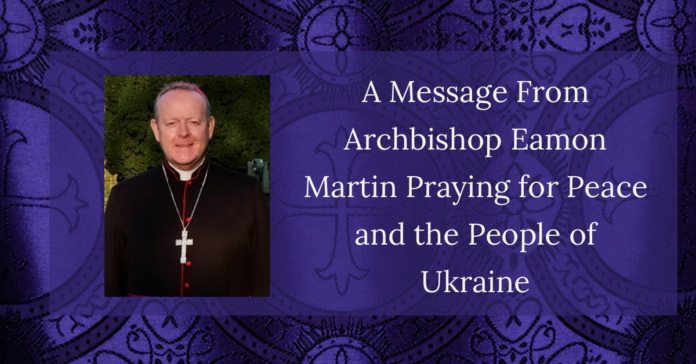
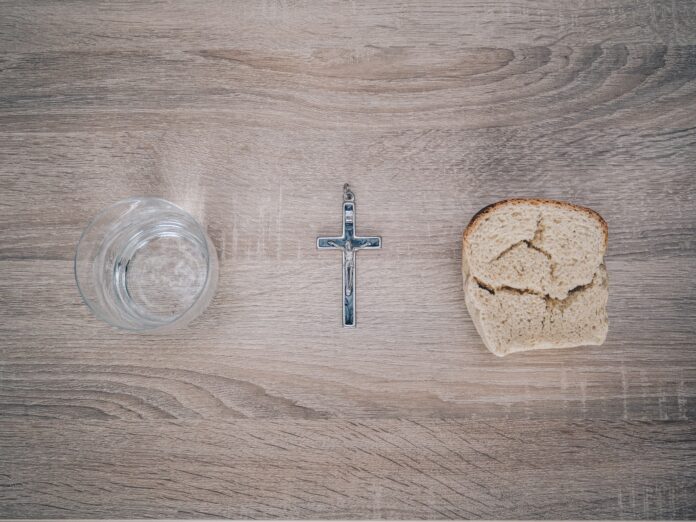
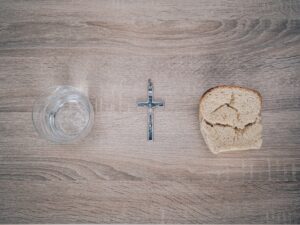 On each of the Tuesday evenings during Lent, a guest speaker will join and offer their thoughts in St Patrick’s Cathedral at 7.30pm to help us reflect on each of the following themes. People may wish to join in person or via St Patrick’s Cathedral Webcam.
On each of the Tuesday evenings during Lent, a guest speaker will join and offer their thoughts in St Patrick’s Cathedral at 7.30pm to help us reflect on each of the following themes. People may wish to join in person or via St Patrick’s Cathedral Webcam.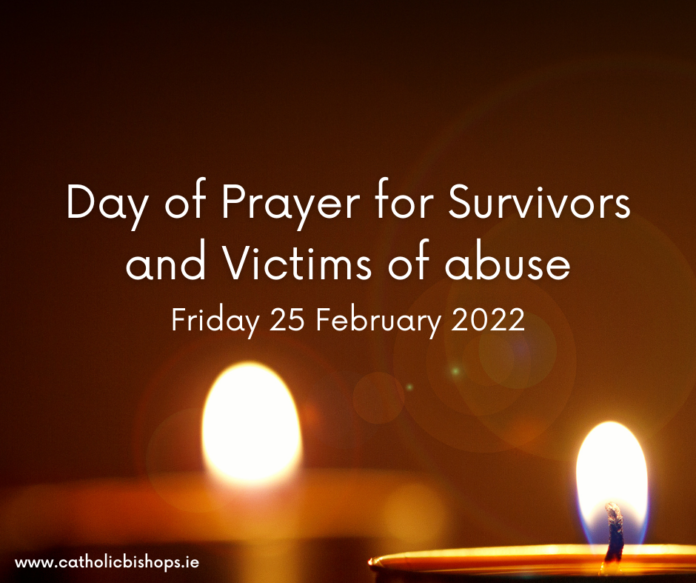
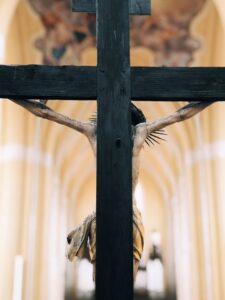
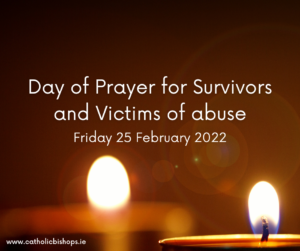
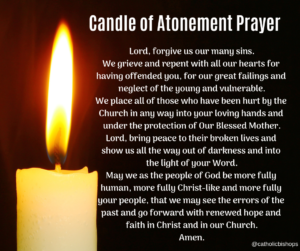
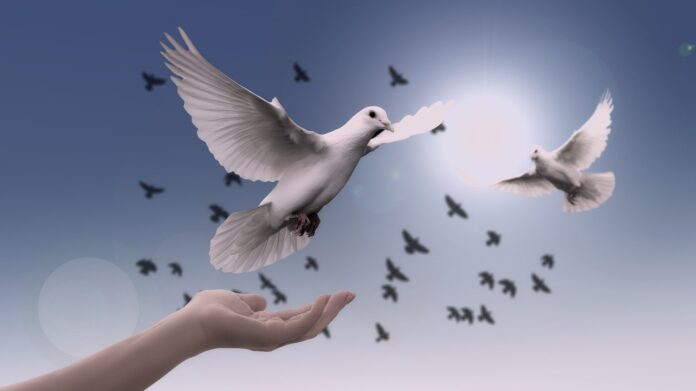
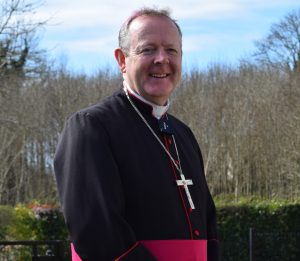


 Archbishop Eamon Martin’s message for New Year 2022
Archbishop Eamon Martin’s message for New Year 2022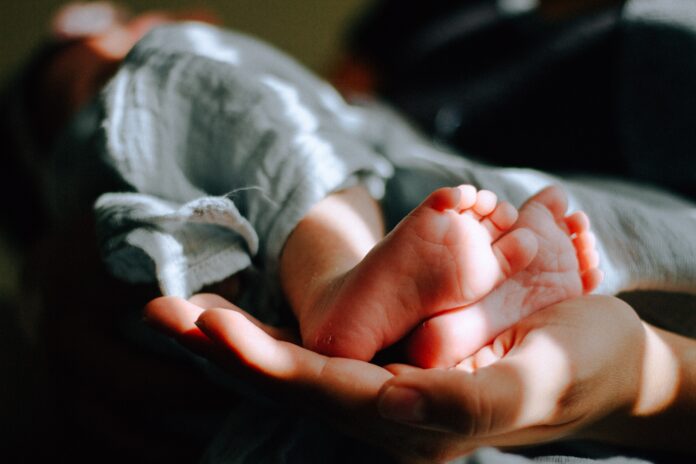
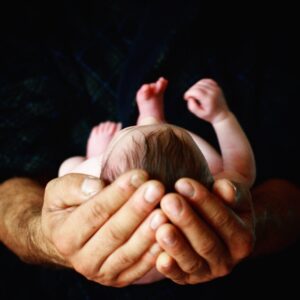
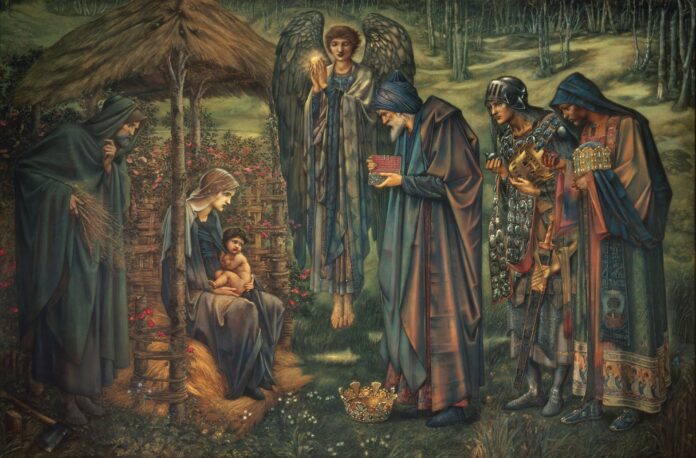

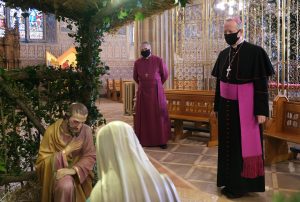
You must be logged in to post a comment.